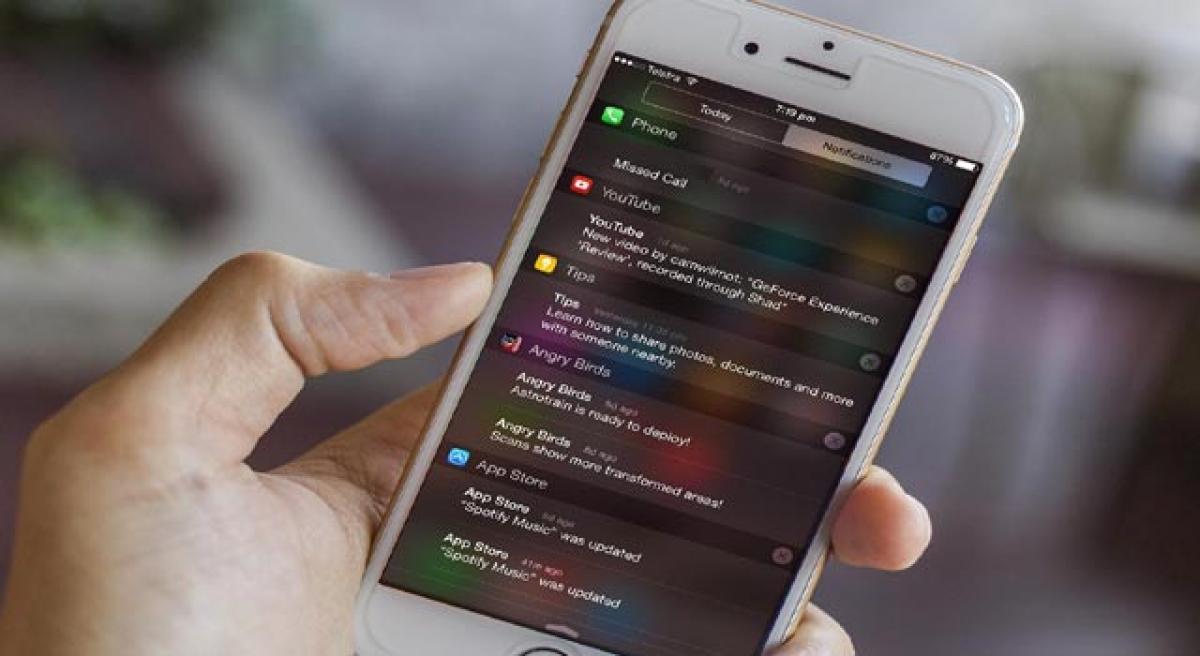Live
- Analysing Happiness
- Two-day ToT organised for trainers
- Savarkar preferred Manusmriti to Constitution: Rahul
- Daily Horoscope for 15 December 2024: Embrace Today’s Insights of Your Zodiac Sign and Unlock Your Potential.
- Beyond The Flames
- CM warns officials of stringent action
- NDA alliance candidates win all seats
- ‘Resignation of Avanthi Srinivas leaves no impact on YSRCP’
- Congress killers of Samvidhan: Modi
- Bejan Daruwalla’s horoscope
Just In

The model can help to better manage smartphone notifications using a sense of personality type and work patterns of individuals. The study will be published in May at the ACM CHI Conference on Human Factors in Computing Systems in Denver, Colorado.
Are you annoyed with your smartphone's relentless stream of text messages, push alerts, social media messages and other noisy notifications? Take heart, experts at Rutgers University in New Jersey, US, have developed a new model that allows the smartphones to learn automatically like a "human secretary" and predict the user's receptiveness to distractions by the notifications.
"Ideally, a smartphone notification management system should be like an excellent human secretary who knows when you want to be interrupted or left alone," said Janne Lindqvist, assistant professor at Rutgers University. Currently, the notification management system is not smart or only depends on a user's setting, such as turning on or off certain notifications.
The model can help to better manage smartphone notifications using a sense of personality type and work patterns of individuals. The study will be published in May at the ACM CHI Conference on Human Factors in Computing Systems in Denver, Colorado. In the study, the researchers collected more than 5,000 smartphone records from 22 participants over four weeks.
The participants took a test to see how their personalities aligned with traits such as extroversion, agreeableness, conscientiousness, neuroticism and openness, to help predict how interruptible people were. The results showed that when participants were in a pleasant mood, they were likely to be more interruptible than if they were in an unpleasant mood. It also varied based on their location.
But participants were reluctant to be interrupted when they were studying and were less interruptible when exercising. "Preferably, your smartphone would recognise your patterns of use and behaviour and schedule notifications to minimise interruptions," Lindqvist added.
The findings could help phone makers and app developers build offerings that are more useful and less annoying, the researchers said. "We know that people struggle with time management all the time, so a smartphone, instead of being a nuisance, could actually help with things," Lindqvist added.

© 2024 Hyderabad Media House Limited/The Hans India. All rights reserved. Powered by hocalwire.com







